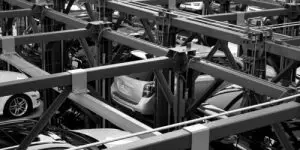A Sceptic’s Perspective on Their Uninspiring Boringness
As the world races toward an electric future, it’s hard not to feel dread about the uninspiring trajectory of the automotive industry. Electric vehicles (EVs) are unequivocally hailed as the saviours of our environment, but let’s not ignore the elephant in the room—they’re painfully boring.
The Sensory Experience
One of the most thrilling aspects of driving has always been the sensory overload—the engine’s roar, the vibrations, the shifting gears. With EVs, this visceral experience is replaced by a sterile silence. Instead of the growl of a V8 or the scream of a turbocharged inline-four, we get a whirring sound reminiscent of a household appliance rather than a performance machine.
Take, for instance, the new wave of electric hypercars like the Rimac Nevera. It’s undeniably fast, but speed alone doesn’t make a car exciting. There’s no crescendo of an engine note to accompany the acceleration, no symphony of mechanical parts working harmoniously. A clinical burst of speed detaches the driver from the machine.
Homogenization of Design
With their need for aerodynamic efficiency to maximize range, electric cars are starting to look increasingly similar. The distinctiveness of automotive design is being murdered at the altar of efficiency. Remember the classic lines of a ’67 Mustang or the iconic shape of a Porsche 911? Now compare that to the current crop of EVs, which often look like rounded-off blobs designed by a committee rather than a visionary.
Even Tesla, the poster child of the electric revolution, has been criticized for its minimalist interiors and bland exteriors. The Model 3, for example, has been described as having a “spartan” interior that lacks the luxurious feel of similarly priced petrol cars.
Charging Inconveniences
Despite the growing number of charging stations, EVs need to be more convenient than their gasoline counterparts. Fast-charging networks are expanding, but they are nowhere near as ubiquitous as petrol stations. And let’s not even get started on charging times. While you can refuel a petrol car in a few minutes, charging an EV can take anywhere from 30 minutes to several hours, depending on the charger and battery capacity.
Environmental Trade-offs
Let’s address the supposed environmental benefits. Yes, EVs produce zero tailpipe emissions, but their overall environmental impact is more complicated. The production of lithium-ion batteries involves significant mining activities, often in environmentally sensitive areas. Moreover, the recycling of these batteries poses a substantial challenge. In essence, we might be trading one environmental problem for another, with the bonus of making our driving experience dull.
Nostalgia for the Internal Combustion Engine
There’s something deeply nostalgic about internal combustion engines. They’re not just machines but living, breathing entities with personalities. Each engine has its quirks, its sounds, and its feel. From the burble of a classic American V8 to the high-pitched scream of an Italian V12, these sounds are music to the ears of any petrolhead. In their pursuit of efficiency and silence, EVs strip away this character and replace it with uniformity.
The Future of Car Culture
Car culture has always been about more than just getting from point A to point B. It’s about the joy of driving, the thrill of acceleration, the pride in a well-maintained engine. As EVs become more prevalent, there’s a real fear that this culture will erode. Will future generations know the thrill of a perfectly executed downshift or the satisfaction of rebuilding an engine? Or will they be content with silent, soulless appliances that move them around?
Conclusion
While the electric future might be inevitable, it doesn’t have to be boring. Manufacturers need to find ways to inject personality and excitement into their EVs. Otherwise, we risk losing the very soul of driving. For now, though, it’s hard not to look at the current state of EVs and feel a profound sense of boredom. The future of driving should be about more than efficiency and eco-friendliness; it should be about passion, excitement, and the sheer joy of the open road.
So, while the world may be charging ahead with EVs, some of us will still be clinging to our beloved petrol engines, keeping the flame of automotive excitement alive for as long as possible.




